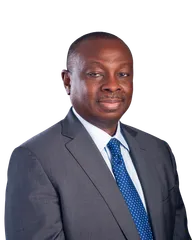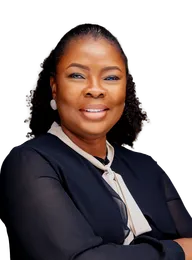Authors
Expertise

The question is no longer whether American policy decisions affect African economies; the question is how deeply, swiftly, and in which specific sectors these effects are felt. Thus, we will critically examine the mechanisms of U.S. policies and assess how their recalibration impacts Africa’s economic landscape.
Introduction
The United States, as a global economic powerhouse, does not merely influence global markets, it frequently directs their course. Policy shifts in the United States, ranging from trade tariffs to monetary decisions, as well as changes in development aid and climate finance priorities, generate ripple effects that extend well beyond its borders. For African economies, many of which are emerging, diversifying, or stabilising, such changes can mark the difference between sustained growth and economic stagnation, or between prosperity and heightened vulnerability.[1]
The question is no longer whether American policy decisions affect African economies; the question is how deeply, swiftly, and in which specific sectors these effects are felt. Thus, we will critically examine the mechanisms of U.S. policies and assess how their recalibration impacts Africa’s economic landscape.
The mechanisms of US policies
The mechanisms of US policies are categorised as follows:
Economic
Diplomatic
Strategic
Regulatory
Economic
The United States has recently shifted its tariff regime, imposing substantial trade barriers on goods and services from several African countries. Tariff rates have reportedly soared to 50% for Lesotho and average around 10% for countries like Egypt, Morocco, and Kenya. The U.S. trade policy recalibration poses complex challenges and marginal opportunities for African economies, forcing the continent to adjust its economic strategies amid an increasingly unpredictable global trade landscape[2].
Heightened tariffs immediately erode preferential market access for African exports to the United States, a key channel for many African nations. Export-dependent countries, especially in textiles, agriculture, and minerals, face severe economic disruption. For example, Lesotho, reliant on garment exports, will likely lose significant revenue due to a 50% tariff, worsening unemployment and threatening its fragile economic stability.
The broader economic effects go beyond just exporters, with profound implications. Export-facing industries will likely see job losses surge, affecting U.S.-Africa trade integration. Additionally, consumer goods might get pricier in affected African countries due to less import competition, hurting low-income households’ purchasing power and potentially boosting inflation.
U.S. economic policy toward Africa had two main goals: opening African markets for U.S. goods and services and boosting Africa’s economic development. These economic moves were often part of bigger foreign policy aims, like promoting democracy, liberal market economies, and human rights standards.[3]
To achieve these goals, the United States launched initiatives like the African Growth and Opportunity Act (AGOA). Started in 2000 under President Clinton and renewed periodically, AGOA gives eligible Sub-Saharan African countries preferential access to the U.S. market for over 6,000 products. It also boosts U.S. exports to Africa. African exports to the U.S. jumped from $28 billion in 2001 to over $100 billion in 2008, then dropped to $37 billion in 2008, then lower petroleum imports. Countries like South Africa and Kenya benefited, with Kenya’s exports to the U.S. growing four times between 2000 and 2016, driving growth in its textile and apparel sectors.
The Prosper Africa initiative complements AGOA, aiming to boost two-way U.S.- Africa trade and investment. Led by 17 federal agencies, including USAID, it drives private sector investment. For instance, Red River Foods, a U.S. company, invested over $3 million in 2018, in cashew processing in Côte d’Ivoire, creating 500 jobs and supporting 11,000 local farmers.
From a Nigerian perspective, Prosper Africa is a chance to attract U.S. private investment into key sectors like agriculture, fintech, renewable energy, and infrastructure. However, Prosper Africa needs to overcome perceptions about Nigeria’s risk, policy volatility, and governance issues to secure long-term investments. Tying Prosper Africa to Nigeria’s National Development Plan (2021–2025) could help focus efforts on sectors with a comparative advantage and high job creation potential.
U.S. International Trade Commission (USITC) data shows that Nigeria exported under $300 million yearly in non-oil AGOA-eligible products from 2015 to 2019, way lower than Kenya‘s $400 million annual exports, mainly textiles and apparel. This means that Nigeria is not fully using AGOA, missing out on job creation in manufacturing hubs like Lagos, Kano, and Aba, where SMEs produce textiles and leather goods.
Diplomatic
The U.S.–Africa diplomatic and economic ties go back to the late 19th century, driven by mutual commercial interests and shared economic values. Unlike European powers, which had colonial control over Africa, the United States saw Africa the continent as a trading partner, not a colonial subject.
U.S.–Africa relations were built on trade, diplomacy, and long-term cooperation. Over time, this grew into a broader framework of bilateral and multilateral engagement, aiming for economic growth, democratic governance, and strategic partnerships. The goal is a stable, prosperous, and mutually beneficial alliance[4].
For decades, the United States has strategically promoted democracy in Africa, seeing it as a policy tool with real economic impact. Sixteen African nations now have democratic, free-market systems, but instability and weak institutions still hurt democratic progress and economic strength.
U.S. foreign policy sees democratic governance as key to economic stability. In 2021, Secretary of State Antony Blinken told ECOWAS that the U.S would support three areas: using technology to boost democracy, ensuring transparent elections, and holding leaders accountable. This aims to cut political risk and make African economies more appealing to investors.
U.S. policymakers now see governance issues like corruption and marginalisation as hurdles to both democracy and economy. Assistant Secretary Molly Phee stressed that inclusive governance unlocks opportunities for youth, women and minorities, supporting long-term development.
U.S. anti-corruption efforts boost democratic norms and fiscal transparency, which builds investor confidence. Without rule of law and institutional accountability, economies are prone to capital flight and volatility, regardless of their resources or market potential.
A 2019 Afrobarometer survey shows 68% of Africans favour democracy, but only 43% are happy with how democracy works now. This “democracy gap” stems from poor governance and unmet socio-economic needs.
Programs like the Young African Leaders Initiative, especially the Mandela Washington Fellowship, have trained over 5,000 young African professionals in the U.S., linking leadership, governance, and economic growth to help bridge the democracy gap.
The U.S. Africa Leaders’ Summit encourages dialogue and collaboration among civil society, business, and government, marking a shift to more inclusive engagement, moving beyond just aid.
When the U.S. does not push back against democratic backsliding, its credibility takes a hit. Sudan’s military coup, during a democratic transition, drew criticism due to the weak response of the U.S., raising doubts about its commitment to democracy. Not acting risks empowering autocrats and scaring off economic partners.
Read more...
[1] Fabio Scala “The impact of US elections on Africa’s economic landscape” < https://www.linkedin.com/pulse/impact-us-elections-africas-economic-landscape-fabio-scala-cav-osi-o0ucf> accessed May 25 2025.
[2] Ezenwa Opara, “Impact Of The U.S. Tariff Regime On Africa”<https://westafricaweekly.com/impact-of-the-u-s-tariff-regime-on-africa/> accessed May 25 2025.
[3] Dramane Chabi Bouko “How the United States can help shape Africa’s future” < https://agoa.info/news/article/15986-how-the-united-states-can-help-shape-africa-s-future.html> accessed May 25 2025
[4] Ikenna Patrick Nwobu “United States foreign policy in Africa, with a focus on Nigeria” < https://digitalcommons.liberty.edu/cgi/viewcontent.cgi?article=1370&context=hsgconference> accessed May 25 2025
Important Notice: The information contained in this Article is intended for general information purposes only and does not create a lawyer-client relationship. It is not intended as legal advice from Jackson, Etti, & Edu (JEE) or the individual author(s), nor intended as a substitute for legal advice on any specific subject matter. Detailed legal counsel should be sought prior to undertaking any legal matter. The information contained in this Article is current to the last update and may change. Last Update: October 1, 2024.





